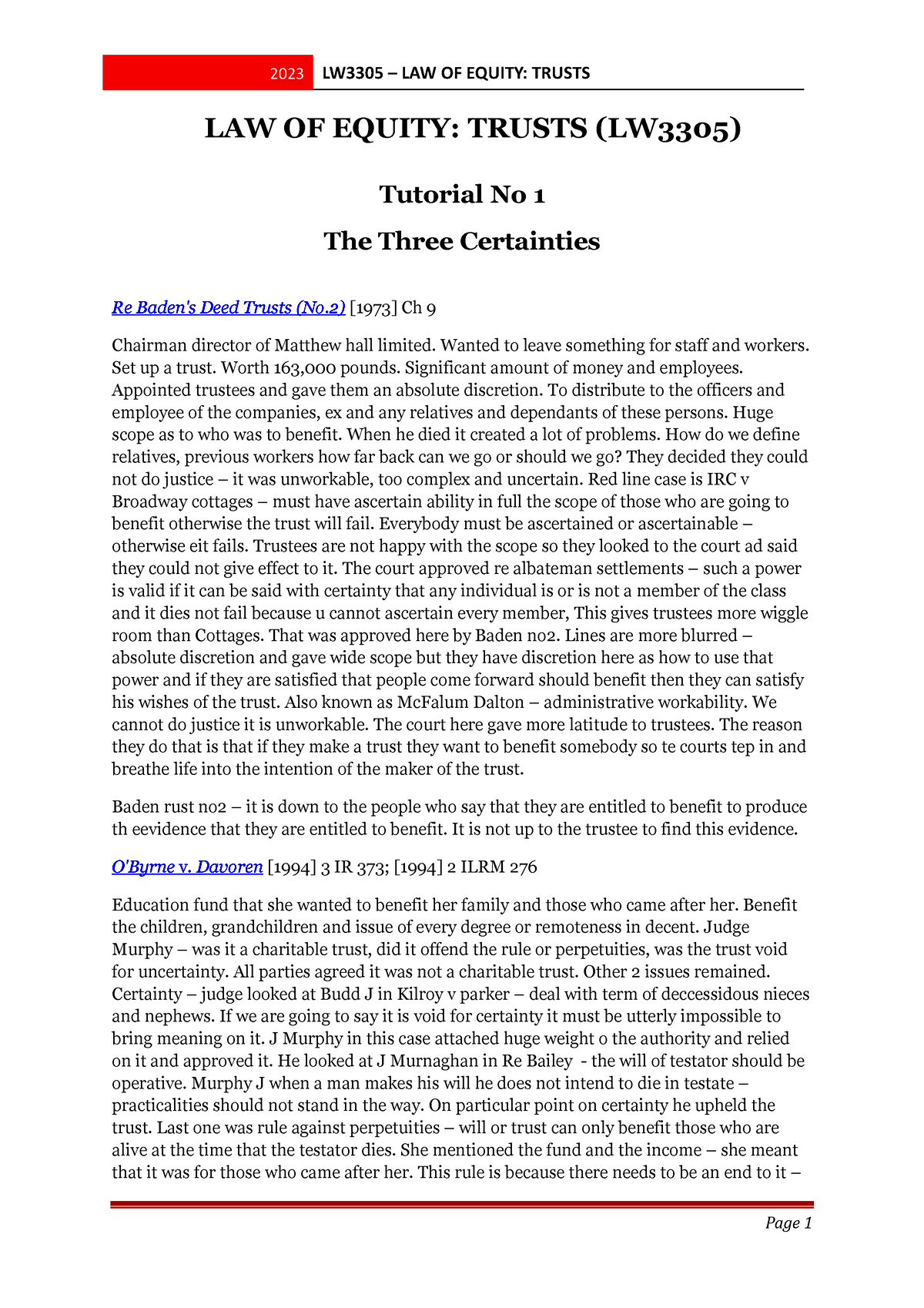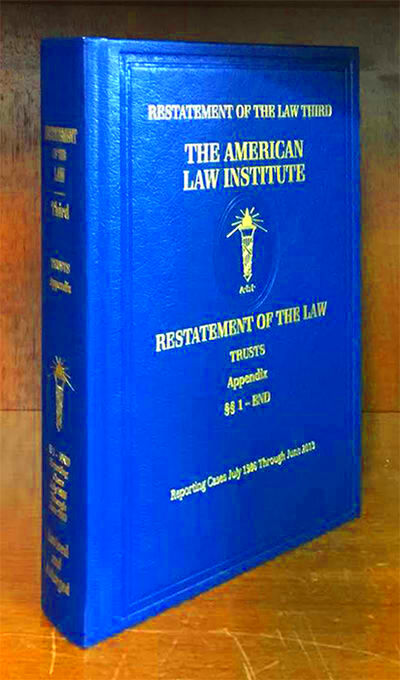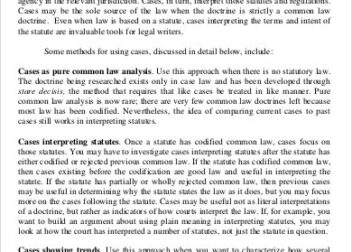Restatement of the Law Third Trusts: Key Points
In America, the Restatement of the Law Third Trusts is essential for understanding trust law. It brings together different precepts and elucidates significant ideas relevant to trusts. Composed by lawyers, this text is directed at judges, attorneys, and all those who are concerned with the nuances of trust legislation. The paper will tackle its importance, its main tenets and how it compares to previous practice restatements.
Understanding Trusts and Their Importance

Incorporating estate planning, protection of assets and philanthropy among other things, trusts prove a necessity in today’s world. A trust simply means one party manages and holds the assets for the other. This is why trusts matter:
- Asset Protection: Trusts can safeguard assets from creditors and legal claims.
- Tax Benefits: They can offer tax advantages depending on the type of trust and its structure.
- Control Over Distribution: Trusts allow the granter to set specific terms for how and when beneficiaries receive their assets.
- Privacy: Unlike wills, trusts do not go through probate, keeping financial matters private.
To sum up, trusts offer flexibility and security in asset management and distribution, which is why they are integral to estate planning.
Key Principles of the Restatement of the Law Third Trusts
The Restatement of the Law Third Trusts emphasizes some of the major laws which rule trust law. Some major highlights include:
- Creation of Trusts: A trust must have a clear intent from the granter, identifiable beneficiaries, and specific trust property.
- Trustee’s Duties: Trustees are obligated to act in the best interests of the beneficiaries, adhere to the terms of the trust, and avoid conflicts of interest.
- Beneficiary Rights: Beneficiaries have the right to be informed about the trust and its administration, including receiving account statements.
- Modification and Termination: Trusts can often be modified or terminated based on the granter’s intent, changes in circumstances, or mutual agreement among beneficiaries.
Trust law is usually founded on principles that work towards amending and facilitating fairness, transparency and accountability in trust management practices.
Differences Between the Restatement and Previous Versions
A comparison among the Restatement of the Law Third Trusts and its earlier versions reveals some critical distinctions. The main goal of these restatements is to provide an improved understanding of the ever-changing law in tune with present-day practices and social transformations. Here are some ways in which Third Restatement is distinct:
- Clarity and Accessibility: The Third Restatement is written in a more straightforward manner, making it easier for non-lawyers to understand compared to previous versions.
- Focus on Modern Trusts: This version includes principles that specifically address contemporary issues, such as electronic records and digital assets.
- Emphasis on Fiduciary Duties: The Third Restatement places a stronger emphasis on the responsibilities of trustees, ensuring they are held to higher standards of accountability.
- Enhanced Beneficiary Rights: There is a clearer articulation of beneficiary rights, which helps to protect their interests more effectively.
Realizing any such disparities would enable attorneys to take on twists and turns in trust legislation more competently, while incorporating relevant ideologies into their profession.
Practical Applications of the Restatement in Trust Law
The Restatement of the Law Third Trusts is more than merely theoretical; it embodies practical considerations that are relevant to legal practice on a daily basis. Here is how it can be employed:
- Drafting Trust Documents: Lawyers can refer to the Restatement for guidance on drafting clear and enforceable trust agreements that reflect current legal standards.
- Dispute Resolution: In case of disputes, judges and attorneys can use the Restatement to interpret trust provisions and resolve conflicts based on established principles.
- Educational Resource: Law schools and continuing education programs utilize the Restatement to teach students and practitioners about the nuances of trust law.
- Policy Making: Legislators can use the Restatement as a reference point when considering reforms to trust laws at the state level.
Such real-world uses emphasize on the Restatement’s significance within the context of law, directing legal practitioners in their routine work, and increasing law governing trusts.
Common Challenges and Misunderstandings
Even though it is clearly stated, there are several misconceptions and complications regarding Restatement of the Law Third Trusts. Here are some of the most typical problems:
- Misinterpretation of Fiduciary Duties: Some trustees may misunderstand their obligations, believing they have more leeway than what the Restatement stipulates.
- Assumption of Automatic Validity: Many believe that simply adhering to the Restatement guarantees the validity of a trust, while actual validity depends on compliance with state laws.
- Lack of Awareness of Changes: Legal professionals may not be fully aware of the updates in the Third Restatement, leading to outdated practices being employed.
- Complexity of Language: While the Third Restatement aims for clarity, some legal jargon can still confuse those unfamiliar with trust law.
Ongoing education and communication amongst legal professionals addressing these challenges are necessary to ensure proper understanding of the Restatement and its application by all involved.
Recent Developments in Trust Law
The law governing trusts is continually changing, with recent changes mirroring shifts in society, technology and legal views. Staying in touch with these changes is very important for both professionals and individuals making use of trusts. Below are some of the major trends and snippets of information on various developments:
- Digital Assets: As technology advances, there is a growing recognition of digital assets, such as cryptocurrencies and online accounts, within trusts. Recent legal frameworks are starting to address how these assets can be managed and distributed.
- Flexible Trust Structures: The demand for more flexible trust arrangements has led to innovations like decanting, which allows trustees to modify existing trusts to better meet the needs of beneficiaries.
- Increased Focus on Beneficiary Rights: Courts are increasingly upholding beneficiary rights, ensuring that they are informed and involved in trust administration, fostering transparency and accountability.
- Environmental, Social, and Governance (ESG) Considerations: Trusts are beginning to incorporate ESG principles, allowing grantors to align their investments with personal values, particularly in charitable trusts.
The significance of remaining updated on the latest developments cannot be stressed enough as they aid persons and specialists deal with the intricacies of trust legislation more efficiently. Additionally, it guarantees that trusts maintain conformity with latest regulations.
Frequently Asked Questions about Trusts
Many people have questions about trusts. Here are some FAQs that can help clear up common queries:
-
What is the difference between a trust and a will?
- A trust manages assets during and after a person’s life, while a will distributes assets after death. Trusts can offer more control and privacy.
-
Can I change or revoke my trust?
- Yes, most revocable trusts allow the granter to modify or revoke them at any time as long as they are mentally competent.
-
Who can be a trustee?
- A trustee can be an individual or an institution, but they must be trustworthy and capable of managing the trust’s assets responsibly.
-
Are trusts subject to taxes?
- Yes, while trusts can provide tax benefits, they may also be subject to income and estate taxes depending on their structure.
When a person knows the essentials of a trust, he/she may inform his/her choices and prevent the typical mistakes.
Conclusion on the Restatement of the Law Third Trusts
So, to sum up, The Restatement of the Law Third Trusts is an indispensable tool in trust law. It helps lawyers and laymen by making things less obscure, offering contemporary guides and useful examples in applying these laws. The main points are:
- Enhanced Clarity: The Third Restatement simplifies trust law, making it accessible to a broader audience.
- Adaptability: It addresses contemporary issues, ensuring that trust law remains relevant in a rapidly changing world.
- Importance of Fiduciary Duties: By emphasizing the roles and responsibilities of trustees, it promotes ethical practices and protects beneficiary rights.
The Restatement is essential in keeping up with the modern trust law so that trust administration can be enhanced in order to meet the objectives of the grantors. Thus, legal practitioners, trustees and those who want to put up their trust must have knowledge on the Restatement if they are to make informed decisions in this era of law.


